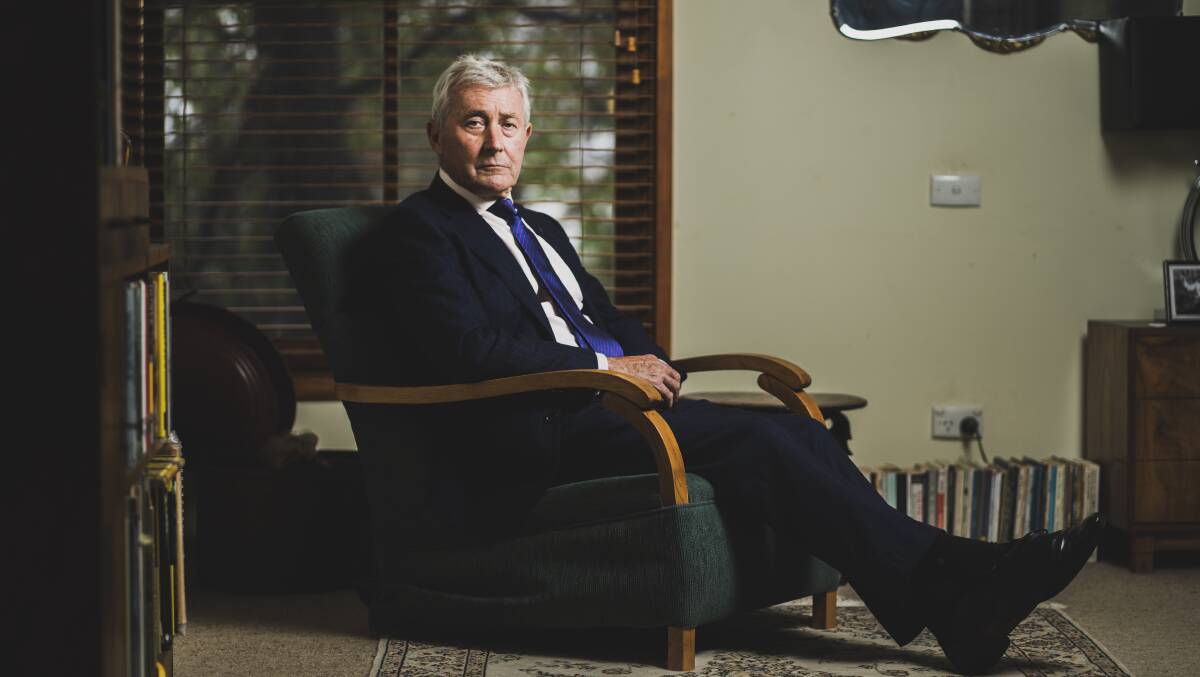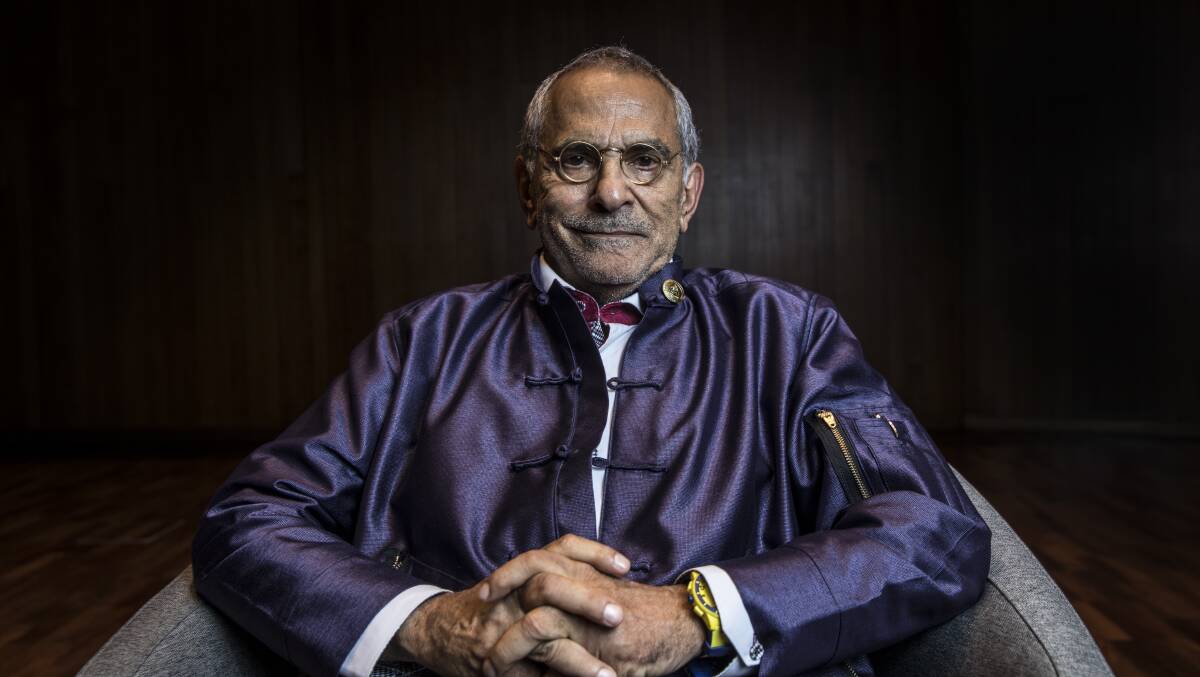
Bernard Collaery says a jury may be asked to decide his fate without seeing all of the evidence when he stands trial accused of breaching national security laws.
Subscribe now for unlimited access.
$0/
(min cost $0)
or signup to continue reading
Speaking on Wednesday, the Canberra lawyer said indications were that some material in his case could be marked "judge only".
His comments came as former East Timor president Jose Ramos-Horta again urged Australian authorities to drop the prosecutions of Mr Collaery and the former spy known as Witness K, saying he would award the men his country's highest honour if he could.
Mr Collaery is pleading not guilty to charges that he illegally communicated Australian Secret Intelligence Service information and that he conspired with Witness K, his former client, to do so.
The charges concern the exposure of an operation in which spies bugged a government building in East Timor in 2004 to give Australia the upper hand against our impoverished ally in negotiations over oil and gas reserves.

Following revelations of the scandal, the countries negotiated a new treaty giving East Timor a far greater share of the wealth.
Significant parts of Mr Collaery's ACT Supreme Court trial are set to be held in secret following a recent decision by Justice David Mossop.
Witness K also faces charges in the ACT Magistrates Court, and his lawyers have indicated that the former spy will plead guilty.
On Wednesday, Mr Collaery and Mr Ramos-Horta participated in a webinar organised by the Australia Institute, an independent think tank based in Canberra.
Mr Collaery told nearly 2000 viewers that Australia's constitution guaranteed him a jury trial.
"Well, what kind of jury trial is it if the public can't be there to see 12 of their fellow citizens, peers, casting judgement on someone?" the former ACT attorney-general asked.
"The jury right in the constitution is a full right; the full right of the jury to see all the evidence.
"Yet, in my trial, there is apparently some judge-only evidence that I shan't see, the jury can't see, but the judge can.
"I mean, are Australians generally aware of how far we've gone? We've gone much further than all other Western democracies in this regard, and why?"
Mr Collaery also referred to new research from the Australia Institute, which reveals that oversight of Australia's intelligence agencies is comparatively weaker than arrangements in other countries in the Five Eyes alliance.
He said there was clearly "a massive need to review our intelligence services".
"If we had effective oversight mechanisms, there might be some others in the dock," he said.
Mr Ramos-Horta, who has previously criticised Australian authorities for prosecuting Mr Collaery and Witness K, described the treatment of the two men as "un-Australian".
He believed the prosecutions were "very unfair" and a waste of Australian resources.
The Nobel Peace Prize winner told the webinar audience the Timorese people were "profoundly shocked".
"It's absolutely, entirely [about] oil and money. Zero to do with Australian national security," Mr Ramos-Horta said of the prosecutions on Wednesday.
"Let Witness K live his life as an honourable patriot of Australia.
"Stop harassing Bernard Collaery and let him go back to his law practice and have a normal life.
"If I were [still] president of Timor-Leste, I would have already decorated these two men ... with the highest honour in Timor-Leste."
Mr Ramos-Horta said spying on his tiny island nation to gain a financial advantage was akin to "trying to extract money" from an 80-year-old woman living off a meager pension in the Australian suburbs.
Secret trials were something he said he would not be surprised by if they happened in North Korea, but the idea of such cases being held in Australia was "mind-boggling".
"Please, just drop it," Mr Ramos-Horta urged Australian authorities.
Trial dates are yet to be set in Mr Collaery's case, while Witness K's matter is expected back in court next month.

